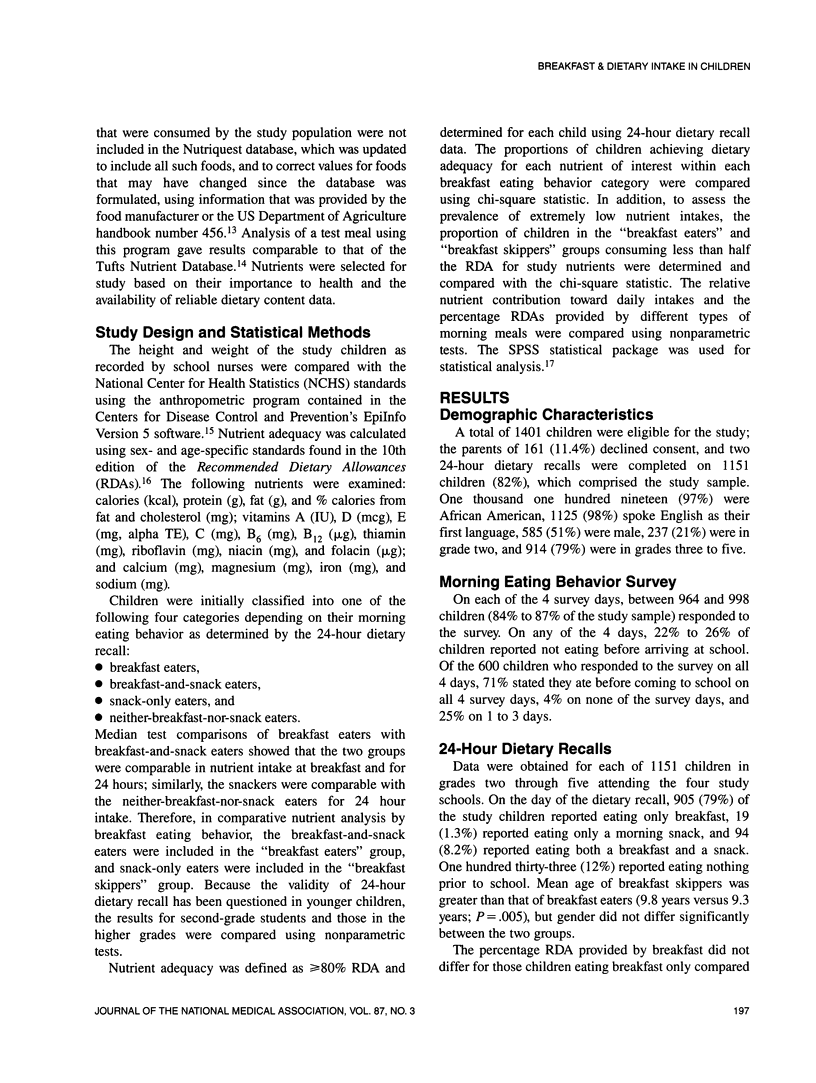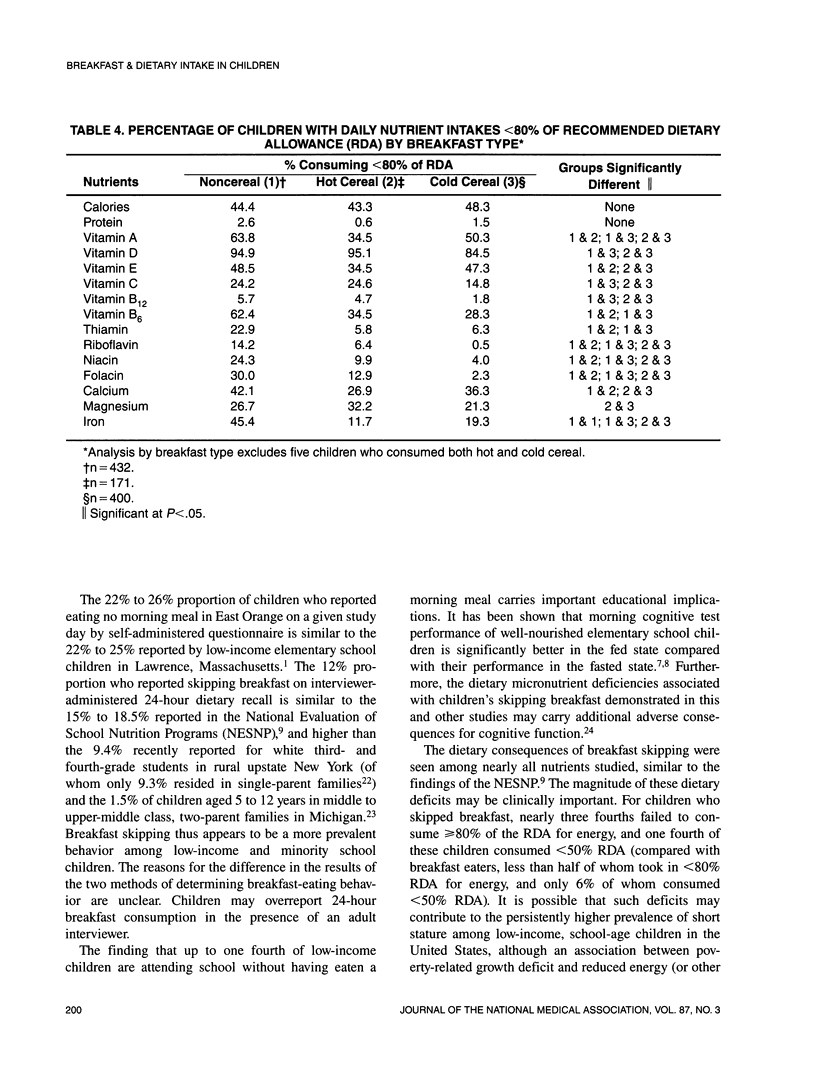Abstract
To determine the contribution of breakfast-eating behavior to dietary adequacy among low-income African-American children, 1151 children attending grades two through five at four elementary schools in East Orange, New Jersey were studied. Results of a 4-day eating behavior survey and a 24-hour dietary recall reveal that on any given day, 12% to 26% of children attend school without having eaten anything. Thirty-six percent of the children were obese, which did not vary with breakfast-eating behavior. A significantly greater proportion of the children who skipped breakfast compared to those who ate breakfast failed to achieve dietary adequacy for nearly every nutrient studied. More than one third of breakfast skippers consumed < 50% of the recommended dietary allowance for vitamins A, E, B6, and folacin, and nearly one fourth consumed < 50% of the recommended dietary allowance for calories, vitamin C, calcium, and iron. Not eating breakfast results in substantial deficits in dietary intake of a variety of essential nutrients among low-income African-American school children. Efforts to improve the nutritional status of children should include nutrition education to promote breakfast.
Full text
PDF







Selected References
These references are in PubMed. This may not be the complete list of references from this article.
- Emmons L., Hayes M. Accuracy of 24-hr. recalls of young children. J Am Diet Assoc. 1973 Apr;62(4):409–415. [PubMed] [Google Scholar]
- Hanes S., Vermeersch J., Gale S. The National Evaluation of School Nutrition Programs: program impact on dietary intake. Am J Clin Nutr. 1984 Aug;40(2 Suppl):390–413. doi: 10.1093/ajcn/40.2.390. [DOI] [PubMed] [Google Scholar]
- Johnston C. C., Jr, Miller J. Z., Slemenda C. W., Reister T. K., Hui S., Christian J. C., Peacock M. Calcium supplementation and increases in bone mineral density in children. N Engl J Med. 1992 Jul 9;327(2):82–87. doi: 10.1056/NEJM199207093270204. [DOI] [PubMed] [Google Scholar]
- Jones D. Y., Nesheim M. C., Habicht J. P. Influences in child growth associated with poverty in the 1970's: an examination of HANESI and HANESII, cross-sectional US national surveys. Am J Clin Nutr. 1985 Oct;42(4):714–724. doi: 10.1093/ajcn/42.4.714. [DOI] [PubMed] [Google Scholar]
- Lozoff B. Behavioral alterations in iron deficiency. Adv Pediatr. 1988;35:331–359. [PubMed] [Google Scholar]
- Maurer K. M. The National Evaluation of School Nutrition Programs: factors affecting student participation. Am J Clin Nutr. 1984 Aug;40(2 Suppl):425–447. doi: 10.1093/ajcn/40.2.425. [DOI] [PubMed] [Google Scholar]
- Morgan K. J., Zabik M. E., Leveille G. A. The role of breakfast in nutrient intake of 5- to 12-year-old children. Am J Clin Nutr. 1981 Jul;34(7):1418–1427. doi: 10.1093/ajcn/34.7.1418. [DOI] [PubMed] [Google Scholar]
- Must A., Dallal G. E., Dietz W. H. Reference data for obesity: 85th and 95th percentiles of body mass index (wt/ht2) and triceps skinfold thickness. Am J Clin Nutr. 1991 Apr;53(4):839–846. doi: 10.1093/ajcn/53.4.839. [DOI] [PubMed] [Google Scholar]
- Pollitt E., Leibel R. L., Greenfield D. Brief fasting, stress, and cognition in children. Am J Clin Nutr. 1981 Aug;34(8):1526–1533. doi: 10.1093/ajcn/34.8.1526. [DOI] [PubMed] [Google Scholar]
- Pollitt E., Lewis N. L., Garza C., Shulman R. J. Fasting and cognitive function. J Psychiatr Res. 1982;17(2):169–174. doi: 10.1016/0022-3956(82)90018-8. [DOI] [PubMed] [Google Scholar]


